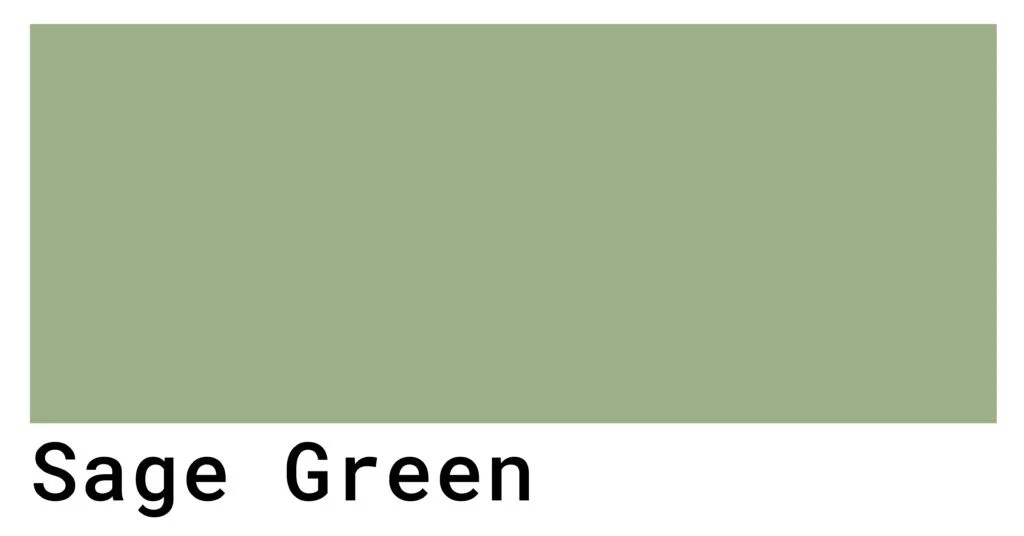Decoding Dark Sage Green: From Nature's Palette to Digital Screens

Dark sage green. The name itself evokes a sense of calm, a whisper of nature's quiet wisdom. This desaturated green, tinged with grey undertones, has emerged as a versatile and sophisticated color choice in various design disciplines, from interior design and fashion to branding and digital interfaces. But what is it about this particular shade that has captured our collective imagination? Is it its grounding earthiness or its ability to seamlessly blend with both vibrant and muted palettes?
The allure of this deep, muted green lies in its subtle complexity. Unlike brighter greens, dark sage doesn't scream for attention. Instead, it offers a calming presence, a quiet sophistication that allows other elements to shine. Think of it as the introverted cousin of emerald green – less flamboyant, but equally captivating. This nuanced shade invites us to explore its depths, to unravel the layers of meaning embedded within its earthy embrace.
Historically, green has been associated with growth, renewal, and nature. Sage green, in particular, takes its name from the herb, known for its medicinal and culinary properties. The darker variant, dark sage green, retains this connection to the natural world, while adding a layer of depth and sophistication. Its muted tone suggests a sense of maturity and tranquility, evoking the stillness of a forest floor or the quiet strength of ancient trees.
One of the most compelling aspects of dark sage green is its versatility. This adaptable hue can be paired with a wide range of colors, from crisp whites and warm creams to rich browns and deep blues. It can serve as a grounding neutral or a subtle accent, depending on its application. In interior design, dark sage green walls can create a calming backdrop for vibrant artwork and furnishings. In fashion, a dark sage green dress exudes an air of effortless elegance. And in branding, this muted green can convey a sense of trustworthiness and sophistication.
However, effectively incorporating this complex color requires a certain level of understanding. Too much dark sage green can create a sense of heaviness, while too little might fail to make an impact. The key lies in finding the right balance, allowing the color to enhance the overall aesthetic without overwhelming it. This involves carefully considering the surrounding colors, textures, and lighting conditions.
Sage green's roots lie firmly planted in the natural world. Its association with the sage plant lends it an aura of wisdom and healing. This connection to nature makes it a grounding and reassuring color choice, particularly in today's fast-paced digital world.
One of the benefits of using this color is its ability to create a sense of tranquility and calm. Imagine a room painted in dark sage green – it instantly feels serene and inviting. This makes it an ideal choice for bedrooms, living rooms, or any space where relaxation is key.
Another advantage is its versatility. Dark sage green can be incorporated into a variety of design styles, from minimalist to bohemian. It works equally well as a dominant color or as an accent, adding depth and sophistication to any space.
Furthermore, dark sage green pairs beautifully with natural materials like wood, stone, and linen, further enhancing its connection to nature. This combination creates a harmonious and grounding aesthetic that appeals to our innate desire for connection with the natural world.
Advantages and Disadvantages of Dark Sage Green
| Advantages | Disadvantages |
|---|---|
| Creates a calming and tranquil atmosphere | Can feel heavy if overused |
| Versatile and adaptable to various design styles | May appear dull in poorly lit spaces |
| Pairs well with natural materials | Can clash with certain bright colors |
A dark sage green accent wall can be a great starting point. Pair it with lighter furniture and natural wood accents to create a balanced and inviting space.
Frequently Asked Questions:
What colors go well with dark sage green? Neutrals like white, cream, and beige, as well as earthy tones like brown and terracotta.
Is dark sage green a warm or cool color? It leans towards the cooler side due to its grey undertones.
Can I use dark sage green in a small room? Yes, but use it strategically, perhaps as an accent wall, to avoid making the space feel smaller.
What is the difference between sage green and dark sage green? Dark sage green is a deeper, more muted version of sage green.
How can I incorporate dark sage green into my wardrobe? Try a dark sage green sweater, scarf, or dress.
Is dark sage green a trendy color? While it has gained popularity, its timeless quality transcends fleeting trends.
Can I use dark sage green in my branding? Yes, it can convey trustworthiness and sophistication.
What are some similar colors to dark sage green? Olive green, eucalyptus green, and muted teal.
A tip for using this multifaceted hue is to experiment with different textures and finishes. A velvet dark sage green sofa will have a different feel than a linen one in the same color. Playing with textures can add depth and interest to your design.
In conclusion, dark sage green offers a sophisticated and versatile alternative to brighter greens. Its calming presence, connection to nature, and adaptability make it an ideal choice for a wide range of applications, from interior design and fashion to branding and digital interfaces. By understanding its nuances and employing it thoughtfully, you can harness the power of this muted yet vibrant hue to create spaces and experiences that evoke tranquility, sophistication, and a deep connection to the natural world. Embrace the quiet strength of dark sage green and let it transform your surroundings into havens of calm and understated elegance. Explore the possibilities, experiment with different combinations, and discover the transformative power of this captivating color.
Unlock culinary camping adventures essential cook utensils
Unlocking potential fc 24 live editor t24115 tu9
Escape the grid unforgettable east coast lake vacations













